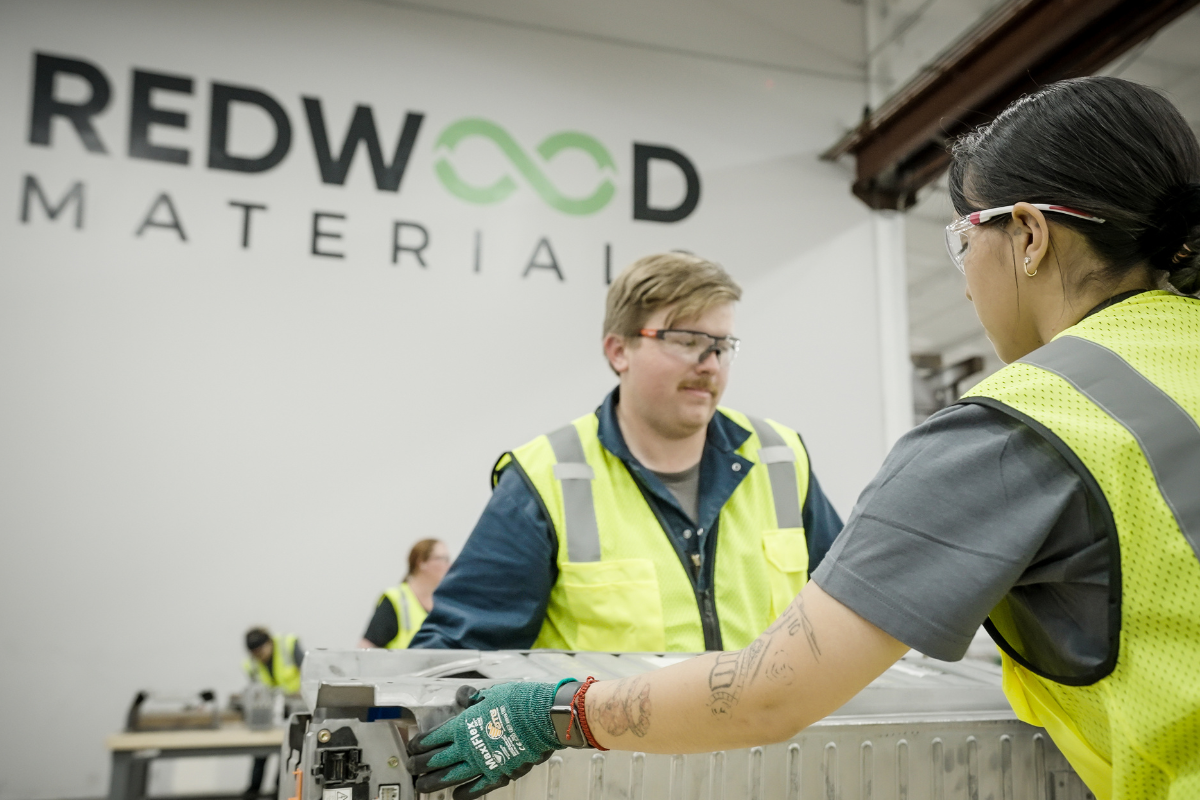
Redwood Materials raised $350 million led by Eclipse Ventures and Nvidia’s NVentures to expand battery recycling, energy storage and domestic material recovery. | Photo courtesy Redwood Materials
Battery recycling and energy storage firm Redwood Materials has raised $350 million in new funding led by Eclipse Ventures, with participation from Nvidia’s investment arm NVentures and other investors.
The Nevada-based company said it will use the Series E proceeds to accelerate expansion of its materials-recovery operations, increase production of recycled battery components and grow its energy-storage business. Redwood plans to add employees and scale its Nevada campus, which serves as both a recycling and manufacturing hub.
“This is a pivotal time for both Redwood and the United States, as curtailment in international supplies overlaps with intense domestic demand growth for these same materials and energy products,” the company said.
Founded in 2017 by former Tesla chief technology officer JB Straubel, Redwood focuses on reclaiming and refining critical materials such as lithium, nickel, cobalt and copper from used electric-vehicle and consumer batteries. The recovered metals are then processed into new anode and cathode materials for battery manufacturers.
Redwood was valued at about $5 billion after raising more than $1 billion in equity financing in August 2023, alongside a $2 billion conditional loan commitment from the US Department of Energy. The firm has since signed supply or recycling partnerships with automakers and technology companies including Volkswagen, Panasonic, Toyota and Lyft.
The new funding round highlights growing alignment between the battery-recycling sector and the technology industry’s energy needs. Nvidia’s participation connects the effort directly to surging power demand from data-center growth driven by artificial-intelligence workloads.
The deal illustrates how battery recycling and energy-storage development are converging to form essential infrastructure for digital and industrial operations. As hyperscale data centers and manufacturing plants expand, reliable power and stable material supply are becoming closely linked challenges.
Redwood’s second-life energy-storage systems repurpose used lithium-ion packs to provide grid-balancing services and backup power. The company believes that this approach could help offset costs for data-center operators while extending the useful life of batteries that might otherwise be discarded.
Beyond immediate capacity growth, the investment also supports national efforts to build domestic supply chains for critical minerals. The US Department of Energy has identified lithium, nickel, cobalt and copper as key inputs for energy-transition technologies and has funded several grant programs to expand recycling and processing capacity.
For recyclers and IT asset-disposition firms, the Redwood transaction underscores a broader opportunity: electronic devices and industrial systems containing battery materials are increasingly viewed as valuable feedstock for advanced recovery operations.
A wave of announced projects across North America points to significant new battery-recycling capacity coming online before the end of the decade. Corporate and venture investment continues in vertically integrated recyclers and refiners with manufacturers seeking more recycled material to meet sustainability targets and reduce supply risk.
Redwood said the new capital will help it meet rising demand from both automotive and energy-storage sectors and allow it to move closer to a closed-loop system for critical-material recovery.
More stories about batteries